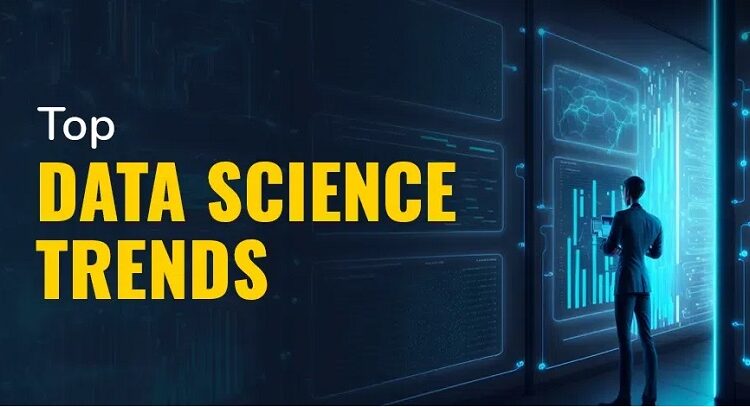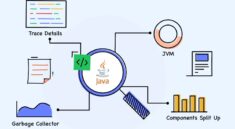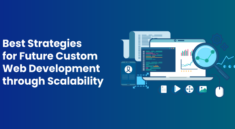Introduction
The field of data science continues to evolve at a rapid pace, shaping industries and driving innovation across the globe. In 2024, the focus has shifted to advancements that address real-world challenges, enhance efficiency, and foster a more inclusive data-driven ecosystem. Here is a closer look at the key trends in data science that are set to dominate this year as indicated by the popularity these trends are gaining across industries and the demand among professionals for a data science course in Pune and such learning hubs for technologies that are aligned with these trends.
Generative AI: Moving Beyond Text and Images
Generative AI, popularised by tools like ChatGPT and DALL-E, is evolving to include capabilities beyond text and image generation. In 2024, the focus has expanded to:
- Code Generation: AI assists developers by generating, debugging, and optimising code, accelerating software development cycles.
- Synthetic Data Creation: Generative AI is creating high-quality synthetic datasets that can extensively train machine learning models, especially in domains like healthcare where data scarcity or privacy concerns are significant.
- Enhanced Personalisation: Retailers and marketers are using generative AI to craft hyper-personalised recommendations, advertisements, and content.
This year, companies are exploring new applications in generative AI, such as video synthesis for education and advanced simulations for scientific research.
Rise of Explainable AI (XAI)
With AI being integrated into critical decision-making processes, the demand for explainable AI is growing. The risks involved in indiscriminate use of data; especially sensitive personal data, is a major concern among data analysts. Technical courses conducted in premier learning centres such as a data science course in Pune will include topics on XAI as part of AI learning. Organisations are prioritising transparency in their AI models to:
- Ensure Trust: Stakeholders require clear explanations of how decisions are made, particularly in sectors like finance, healthcare, and law.
- Comply with Regulations: Governments and regulatory bodies are enforcing stricter rules for algorithmic accountability.
- Improve Model Reliability: Understanding model behaviour helps identify biases and improve accuracy.
In 2024, XAI tools like SHAP (SHapley Additive exPlanations) and LIME (Local Interpretable Model-Agnostic Explanations) are becoming mainstream.
Integration of Data Science and IoT
The Internet of Things (IoT) continues to generate massive volumes of data, while data science continues to play a crucial role in deriving actionable insights. Key trends include:
- Edge Analytics: Performing data analysis directly at the edge devices reduces latency and enhances real-time decision-making.
- Predictive Maintenance: Industries are using IoT data combined with predictive analytics to anticipate equipment failures, saving costs and minimising downtime.
- Smart Cities: IoT and data science are powering smart city projects by optimising traffic, improving energy efficiency, and enhancing public safety.
The synergy between IoT and data science is expected to deepen, with smarter devices and more sophisticated analytics tools entering the market.
Data Privacy and Security as Core Pillars
As data breaches and privacy concerns persist, data science is increasingly focused on safeguarding user data. In 2024:
- Federated Learning: This approach trains models across decentralised devices without transferring data, preserving privacy while enabling robust analytics.
- Data Anonymisation: Techniques like differential privacy are being widely adopted to ensure datasets are secure and anonymised without losing analytical value.
- Privacy Regulations: Compliance with frameworks like GDPR, CCPA, and upcoming global data protection laws is influencing how organisations collect, store, and process data.
Organisations are placing greater emphasis on ethical data practices and ensuring consumer trust.
Real-Time Analytics and Decision Making
Businesses are moving towards real-time analytics to gain a competitive edge. The ability to analyse and act on data instantly is proving invaluable across industries. Real-time analytics is mostly part of any data scientist course; either as a mandatory topic or as an elective. In fact, in dynamic markets, it is a major factor that determines the sustainability of any business.
- E-commerce: Retailers are optimising pricing, inventory, and customer experiences based on real-time consumer behaviour.
- Finance: Banks and financial institutions are leveraging real-time analytics for fraud detection, credit scoring, and dynamic risk assessments.
- Healthcare: Real-time monitoring through wearables and analytics platforms is enabling faster diagnosis and treatment recommendations.
The proliferation of streaming platforms like Apache Kafka and cloud-based analytics solutions is driving this trend.
Democratisation of Data Science
The democratisation of data science continues to grow, empowering non-technical users to perform sophisticated analytics. This trend includes:
- No-Code and Low-Code Platforms: Tools like Tableau, DataRobot, and Alteryx are simplifying complex data processes, enabling business users to analyse data without extensive coding skills.
- Automated Machine Learning (AutoML): AutoML platforms are reducing the need for manual intervention, helping teams build and deploy models faster.
- Upskilling Programs: Organisations are investing in data literacy programs to ensure employees across departments can leverage data effectively. Many organisations sponsor their employees for a data scientist course or conduct in-house courses for upskilling their employees.
In 2024, democratisation is bridging the gap between technical experts and decision-makers, fostering a culture of data-driven innovation.
Focus on Sustainability and Climate Data
Data science is playing a critical role in tackling climate change and promoting sustainability. Key applications include:
- Carbon Footprint Analysis: Businesses are using analytics to measure and reduce their environmental impact.
- Climate Modelling: Data scientists are building predictive models to forecast weather patterns and assess climate risks.
- Sustainable Supply Chains: Companies are optimising supply chains using data insights to minimise waste and energy consumption.
This trend reflects the growing responsibility of data science in addressing global challenges.
Hyper-Personalisation in Customer Engagement
As consumers demand more tailored experiences, hyper-personalisation is becoming a cornerstone of marketing strategies. Topics such as sentiment analysis that are useful in personalising customer experience are increasingly becoming part of any data scientist course that is tailored for marketing professionals. Data science enables:
- 360-degree Customer Profiles: Combining data from multiple sources to provide deep insights into customer preferences.
- Predictive Insights: Anticipating customer needs and behaviours to deliver proactive solutions.
- Dynamic Content: AI-driven analytics are powering personalised content delivery in real-time, enhancing user engagement.
Industries like retail, entertainment, and hospitality are heavily investing in hyper-personalisation to boost customer loyalty and retention.
Advancements in Natural Language Processing (NLP)
Natural Language Processing (NLP) is transforming the way humans interact with machines. In 2024:
- Conversational AI: Chatbots and virtual assistants are becoming more intuitive, offering near-human interactions.
- Text-to-Everything Models: Innovations in models like GPT-4 are enabling text-to-code, text-to-audio, and even text-to-video capabilities.
- Document Processing: NLP tools are automating document-heavy workflows, improving efficiency in sectors like legal, finance, and healthcare.
These advancements are redefining communication between humans and machines, making interactions more seamless.
Conclusion
The trends in data science for 2024 showcase how the field is becoming more integrated into our daily lives and industries. From advancing AI technologies to fostering data privacy and sustainability, data science continues to be at the forefront of innovation. As organisations adopt these trends, they are not only transforming their operations but also contributing to a more connected, efficient, and responsible world. Whether you are a seasoned data scientist or an aspiring professional, staying ahead of these trends by enrolling in an inclusive data scientist course in Pune will be crucial in navigating the dynamic landscape of data science.
Business Name: ExcelR – Data Science, Data Analytics Course Training in Pune
Address: 101 A ,1st Floor, Siddh Icon, Baner Rd, opposite Lane To Royal Enfield Showroom, beside Asian Box Restaurant, Baner, Pune, Maharashtra 411045
Phone Number: 098809 13504
Email Id: enquiry@excelr.com





